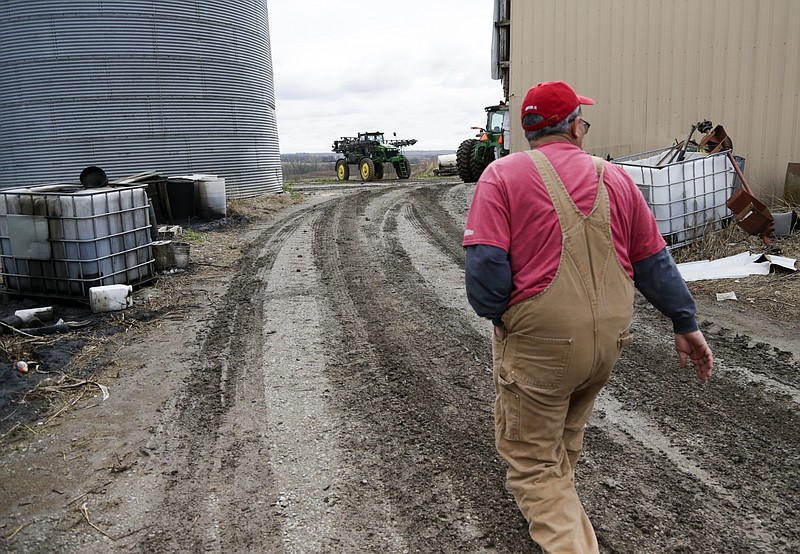The Missouri Farm Bureau would like to provide medical coverage for farmers, but doesn't want to call the coverage insurance.
Although there was support for a bill allowing the insurance company to offer the coverage, competing insurance companies cried "foul" in a Missouri Senate hearing late last month.
More than a dozen witnesses debated a potential exemption for health care regulations that would allow the Missouri Farm Bureau (MOFB) to provide insurance plans for rural farmers at a Senate Insurance and Banking Committee hearing last month.
Senate Bill 11, sponsored by Sen. Sandy Crawford, R-Buffalo, would allow for the MOFB to provide medical coverage without requiring it to be classified as insurance. MOFB President Garrett Hawkins testified in favor of the bill during the hearing.
Hawkins recalled an emotional moment from a member of the organization who was struggling to find health insurance he could afford.
"I'm not looking for a handout," the member told him. "I'm just looking for a way."
Hawkins specified the health insurance plan would not cover or fit a large number of people and was meant to fill a specific need: farmers in rural Missouri with little access to affordable health coverage.
Michael Henderson, a representative for the Missouri Insurance Coalition, testified against the bill, despite the fact that MOFB is a member organization.
"The Farm Bureau is a valued member of the coalition," Henderson said. "The (Missouri) Insurance Coalition is not un-empathetic to those who face barriers to the health market. We are aware of high costs, and it's in our interests to provide as affordable coverage and products to as wide of members as possible. That said, a number of our health carriers do have concern with this bill."
Henderson said some insurance coalition members were worried the bill would create an unequal marketplace by allowing a nonprofit organization like the MOFB to compete in the health marketplace without the same regulations. Henderson raised issues with the bill, citing that a member could sign up to receive services but that MOFB was not legally bound to provide any services.
According to Hawkins, the MOFB would do a preliminary medical underwriting process to assess patient risk, but anticipated nine out of 10 applying patients being covered by the plan. Hawkins emphasized, however, that MOFB aimed to fill a specific need and not replace or compete with insurance providers across the state.
"I describe it as a doughnut hole. In the doughnut hole are folks who have been left behind," Hawkins said. "Individual farmers, farm families or those who are self-employed oftentimes don't qualify for a subsidized plan. I can attest, personally, when we moved home to the farm, we had two carriers that offered one bronze level plan each, neither of which was truly affordable. And so we took other means of trying to provide some type of coverage for a family. And you can repeat that story in a lot of the rural counties."
Several witnesses raised concerns with the lack of regulation, which would allow MOFB to deny people with pre-existing conditions and would not bind them to provide any specific coverage. Representatives for insurance agencies and people in favor of consumer and patient protection raised issue with this.
"If you think you have to be deregulated to put a quality product out there, then let me be deregulated, too," said Shannon Cooper, a witness on the behalf of America's Health Insurance Plans and Blue Cross/Blue Shield of Kansas City. "If we want to find a solution for this, let's create a plan for farmers."
Casey Wasserman, with the Jefferson City-based Missouri Soybean Association, also testified in favor of the bill, among many others.
"It would potentially expose (people with cancer) to medical and financial harm and also allow discrimination against Missourians with pre-existing conditions like cancer. ... The most recent USDA survey says two out of three farmers and ranchers have a pre-existing condition," said Emily Kalmer, who spoke on the behalf of the American Cancer Society Cancer Action Network.
The bill is modeled after a similar program in Tennessee, where the state's chapter of the Farm Bureau was granted an exemption to regulations around providing health insurance. A representative for the Tennessee Farm Bureau testified in favor of the bill, citing its continued success since the mid-1990s.

